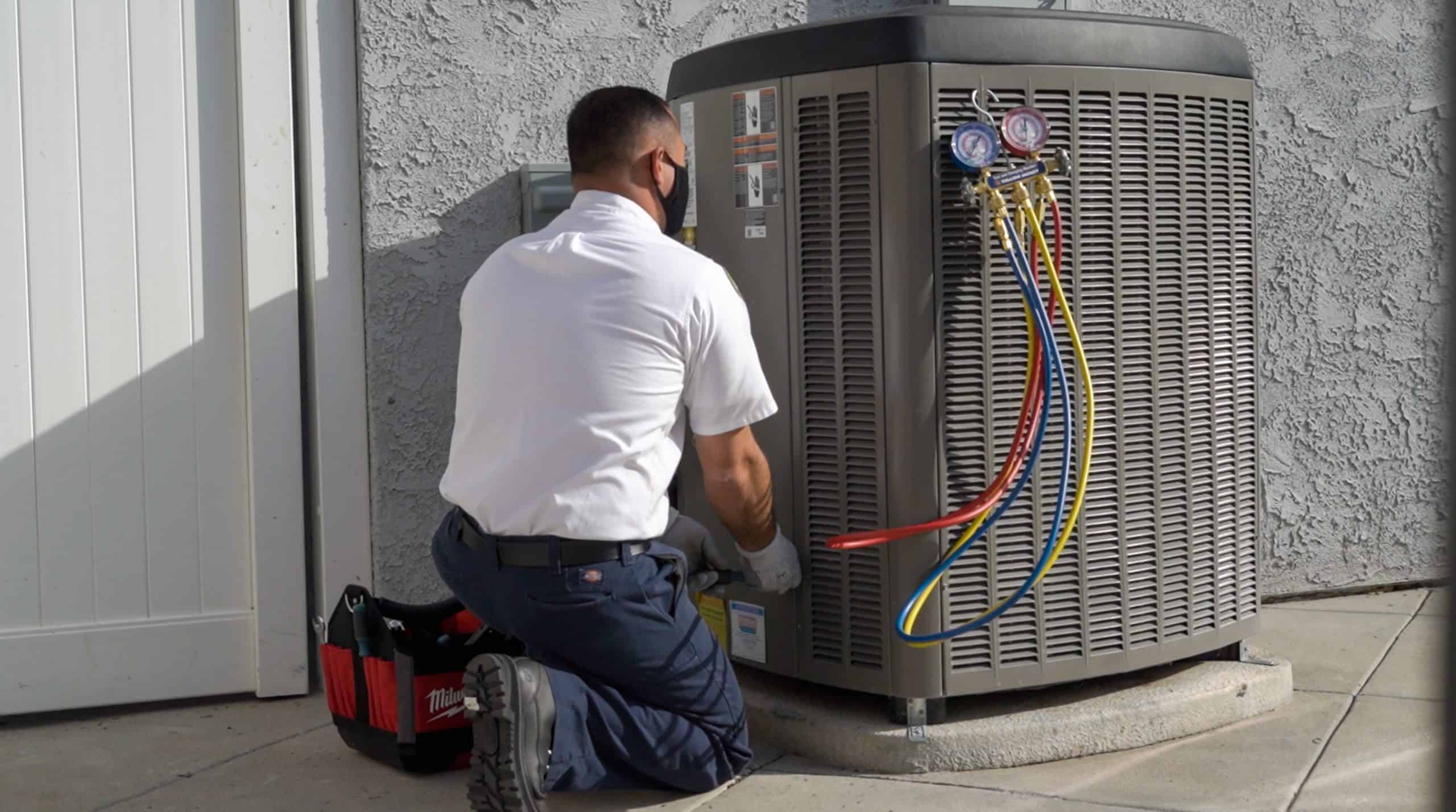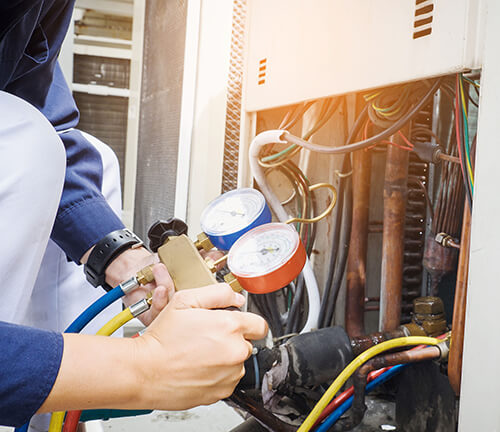Cost-Effective Maintenance Plans with DMAKS HVAC for Your Needs.
Cost-Effective Maintenance Plans with DMAKS HVAC for Your Needs.
Blog Article
Energy-Efficient HVAC Solutions to Save Money On Utility Expenses
As power costs remain to climb, the relevance of energy-efficient cooling and heating systems ends up being increasingly apparent. These systems not just promise considerable savings on energy costs yet also add to a much more lasting future by lessening power intake. With various alternatives readily available, consisting of geothermal heatpump and ductless mini-splits, homeowner face a wide variety of options that can enhance convenience and air high quality. Understanding the essential features and maintenance requirements is important to making best use of these benefits. What variables should be prioritized when choosing the best system for your demands?
Benefits of Energy-Efficient HVAC Equipments
Energy-efficient Cooling and heating systems use various advantages that expand beyond simple cost financial savings. By eating less power, these systems contribute to reduce greenhouse gas emissions, helping to battle environment modification and advertise sustainability.
In addition, energy-efficient a/c systems often supply boosted comfort levels. A lot of these systems feature innovative technology that allows for much better temperature control and boosted air quality (DMAKS HVAC). This brings about a healthier indoor environment, which is especially crucial for people with allergic reactions or respiratory issues
In addition, buying energy-efficient HVAC systems can boost home worth. As even more customers prioritize power effectiveness, homes and buildings geared up with these systems might attract greater proposals in the property market.
Kinds Of Energy-Efficient Heating And Cooling Options
Just how can home owners and companies select the most suitable energy-efficient heating and cooling alternatives for their needs? The market provides a range of energy-efficient HVAC systems, each developed to improve comfort while lessening energy consumption.
One alternative is the variable refrigerant circulation (VRF) system, which effectively controls the temperature level in multiple zones within a building. This system adjusts its refrigerant circulation to match the desired temperature level, bring about considerable energy financial savings.
Another preferred choice is geothermal heatpump, which make use of the earth's steady temperature level to heat and awesome spaces. By moving heat to and from the ground, these systems show outstanding efficiency, specifically in moderate environments.
Furthermore, ductless mini-split systems give an energy-efficient alternative for homes doing not have ductwork. These systems allow for zone-specific heating and cooling, minimizing power waste in vacant areas.
Lastly, high-efficiency furnaces and a/c, with sophisticated SEER and AFUE ratings, supply trusted climate control while consuming much less energy than traditional models. By reviewing these alternatives, property owners and businesses can pick a heating and cooling system tailored to their details requirements and energy effectiveness goals.
Key Functions to Think About

Next, explore the sort of compressor made use of in the system. DMAKS HVAC. Variable-speed compressors can adjust their outcome to match the heating or cooling down need, leading to boosted convenience and energy financial savings compared to single-speed designs. Additionally, seek systems furnished with clever thermostats that offer programmable settings and remote accessibility, enabling much better control over energy consumption
One more vital attribute is the system's air filtration capacity. High-efficiency filters can improve indoor air high quality and minimize power usage by making certain the system operates effectively. Consider the kind of cooling agent utilized; modern-day systems typically employ green refrigerants sites that have a lower ecological effect.
Finally, ensure that the system works with zoning modern technology, which allows for customized temperature level control in various locations of your home, boosting convenience while decreasing energy use.
Tips for Picking the Right System

Following, think about power performance rankings, particularly the Seasonal Energy Effectiveness Ratio (SEER) for cooling systems and the Annual Fuel Usage Efficiency (AFUE) for heating unit. Higher ratings show higher effectiveness, which can lead to substantial financial savings on energy bills over time.
Additionally, examine the sort of HVAC system that best suits your lifestyle and budget. Options include central air conditioning, ductless mini-splits, and warm pumps, each with its own set of benefits and disadvantages.
Do not neglect the value of correct installment and sizing; an improperly sized system can lead to ineffectiveness and boosted wear. Consult with a professional HVAC specialist to get experienced suggestions tailored to your home's distinct demands. This thorough approach will ensure that you choose an energy-efficient HVAC system that fulfills your requirements and budget plan effectively.
Maintenance for Ideal Performance
Once the best cooling and heating system is in place, recurring maintenance comes to be crucial to making certain ideal effectiveness and long life. A properly maintained system runs extra efficiently, leading to lower check out this site energy consumption and reduced utility expenses. Regular inspections and tune-ups should be scheduled a minimum of two times a year-- once before the air conditioning period and once before the heating period.

Property owners need to likewise be cautious concerning checking their HVAC system's efficiency. Uncommon noises, changing temperature levels, or enhanced power bills can show underlying problems that require immediate focus. By dealing with these problems quickly, property owners can prevent costly repair work and expand the life expectancy of their systems.
Buying a maintenance strategy with a qualified technician not just boosts performance but additionally provides tranquility of mind, understanding that the system is running at its best. from this source DMAKS HVAC. Regular upkeep is therefore important for maintaining power performance and reducing total functional prices
Final Thought
Finally, energy-efficient a/c systems provide a feasible solution for reducing utility bills while boosting convenience and air top quality. By incorporating sophisticated modern technologies and choices such as geothermal heatpump and ductless mini-splits, homeowner can accomplish considerable power cost savings and add to ecological sustainability. Mindful factor to consider of system attributes and continuous upkeep even more ensures ideal efficiency, making energy-efficient systems a prudent financial investment for both economic and environmental benefits.
Report this page